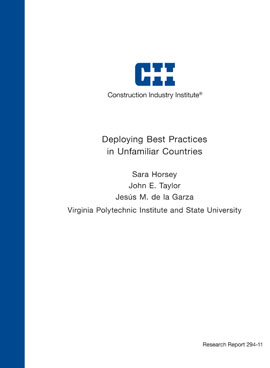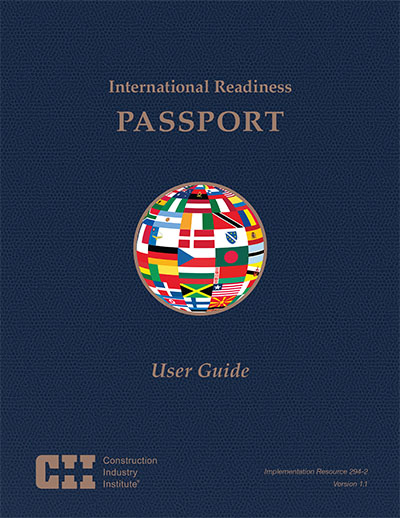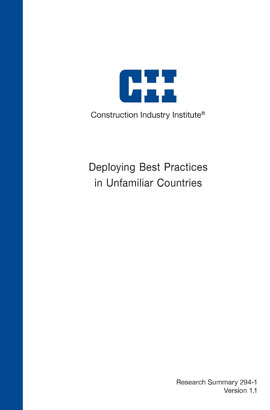
Deploying Best Practices in Unfamiliar Countries
RT 294 was tasked to develop a process to improve the systematic deployment of best practices in unfamiliar countries in response to rapid globalization in the engineering and construction industry. While this trend is enabling new opportunities, companies are facing new challenges. The engineering and construction industry needs processes, metrics, and tools to improve the deployment of best practices in unfamiliar countries to help facilitate project success. RT 294 was charged with the task of developing a process to facilitate the success of projects that could be applied to any best practice in any country.
RT 294 identified a series of issues that are commonly encountered when deploying best practices in unfamiliar countries. The issues were identified using content analysis and then verified by experts with the use of the Delphi Method. The Analytic Hierarchy Process was used to establish RT 294 weightings for the importance of each of the issues. The weightings and the issues were then used to create a scoring metric for companies to have a systematic framework to use when establishing their readiness for projects.
In order to overcome the issues identified in the research, the team developed a series of processes and mitigation strategies that support the creation of an action plan. Through a series of interviews and focus groups a set of checklists of mitigation strategies for the issues were created. The checklists were then rigorously reviewed by the Research Team to ensure that they were both thorough and meaningful in the recommendations they provide. These checklists provide strategies on how to approach each issue.
The International Readiness Passport (IRP) is a tool created by RT 294 in order to provide an effective process for assessing readiness and a base point for creating a project readiness action plan. The tool combines the metric, with the process, and the mitigation strategies developed by the team into a single user friendly interface. This tool utilizes a self-scoring section which is then applied to the weightings for each of the issues. The tool then generates a report with the relevant items for concern and mitigation strategies related to each issue, based on their score.
To ensure that the IRP provides a meaningful benefit to the systematic deployment of best practices in unfamiliar countries, it was validated for effectiveness through a series of retrospective tests. These tests have confirmed the accuracy and relevance of the process, metric, and tool, as well as the tool’s capabilities.



